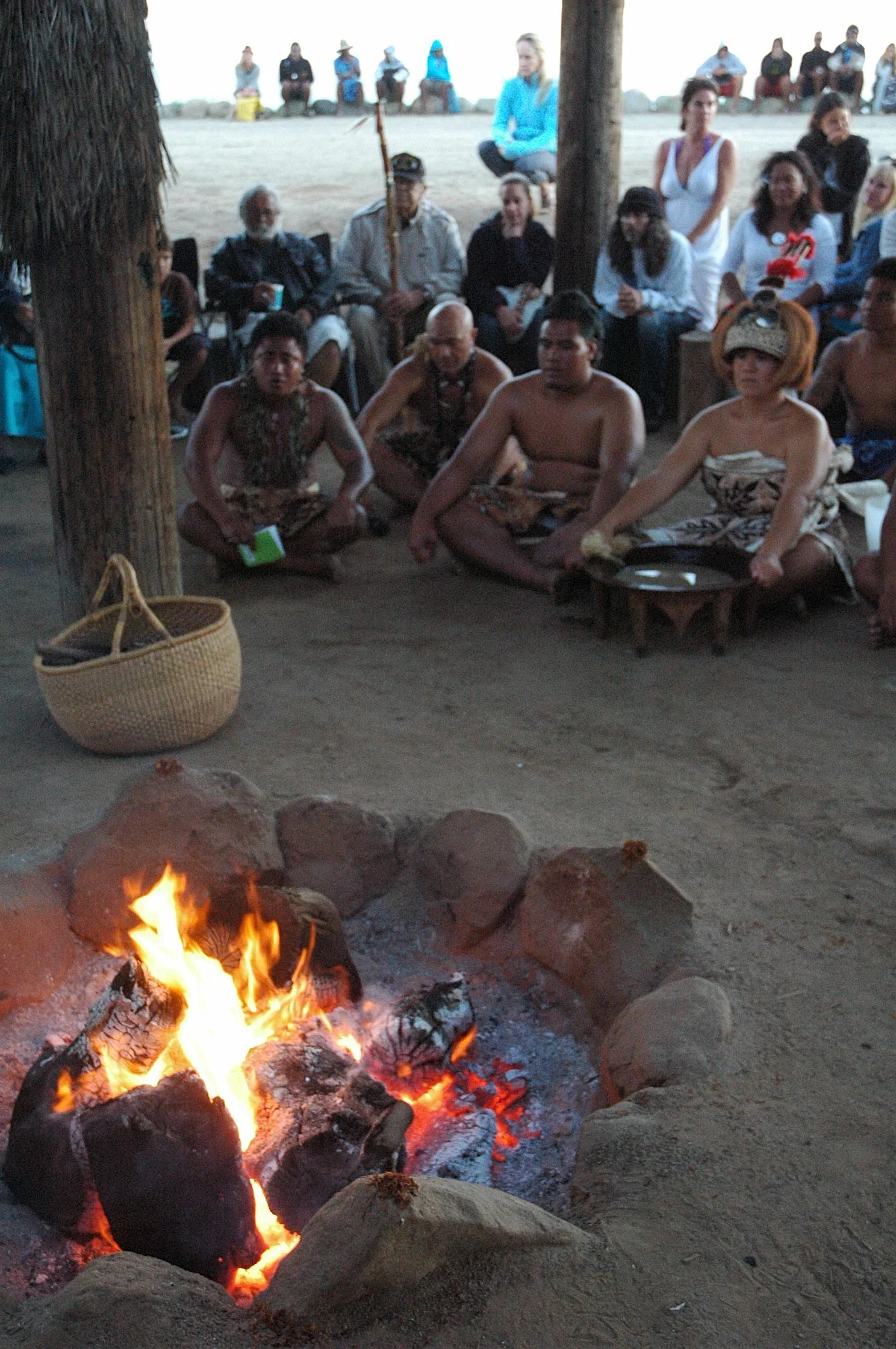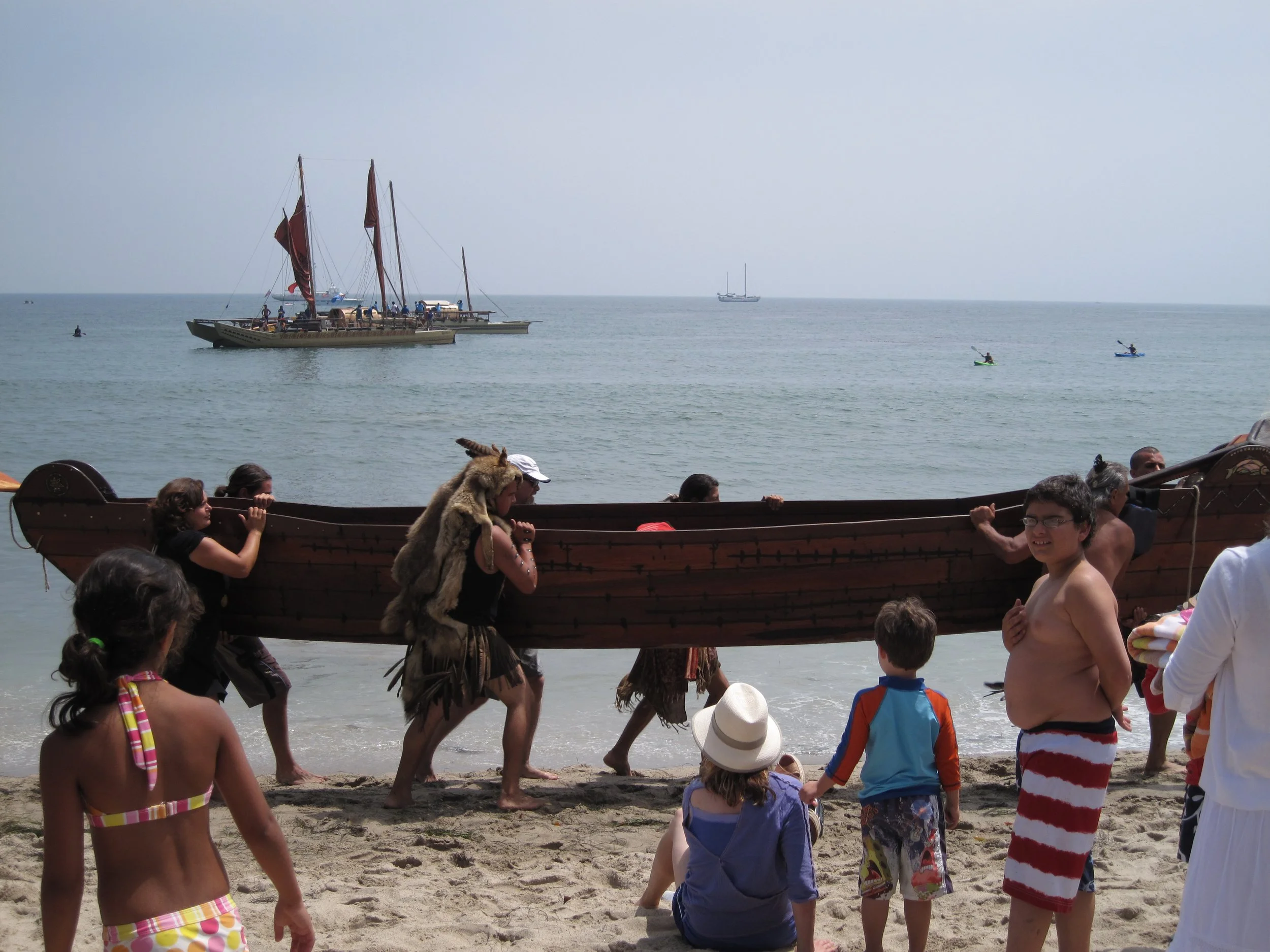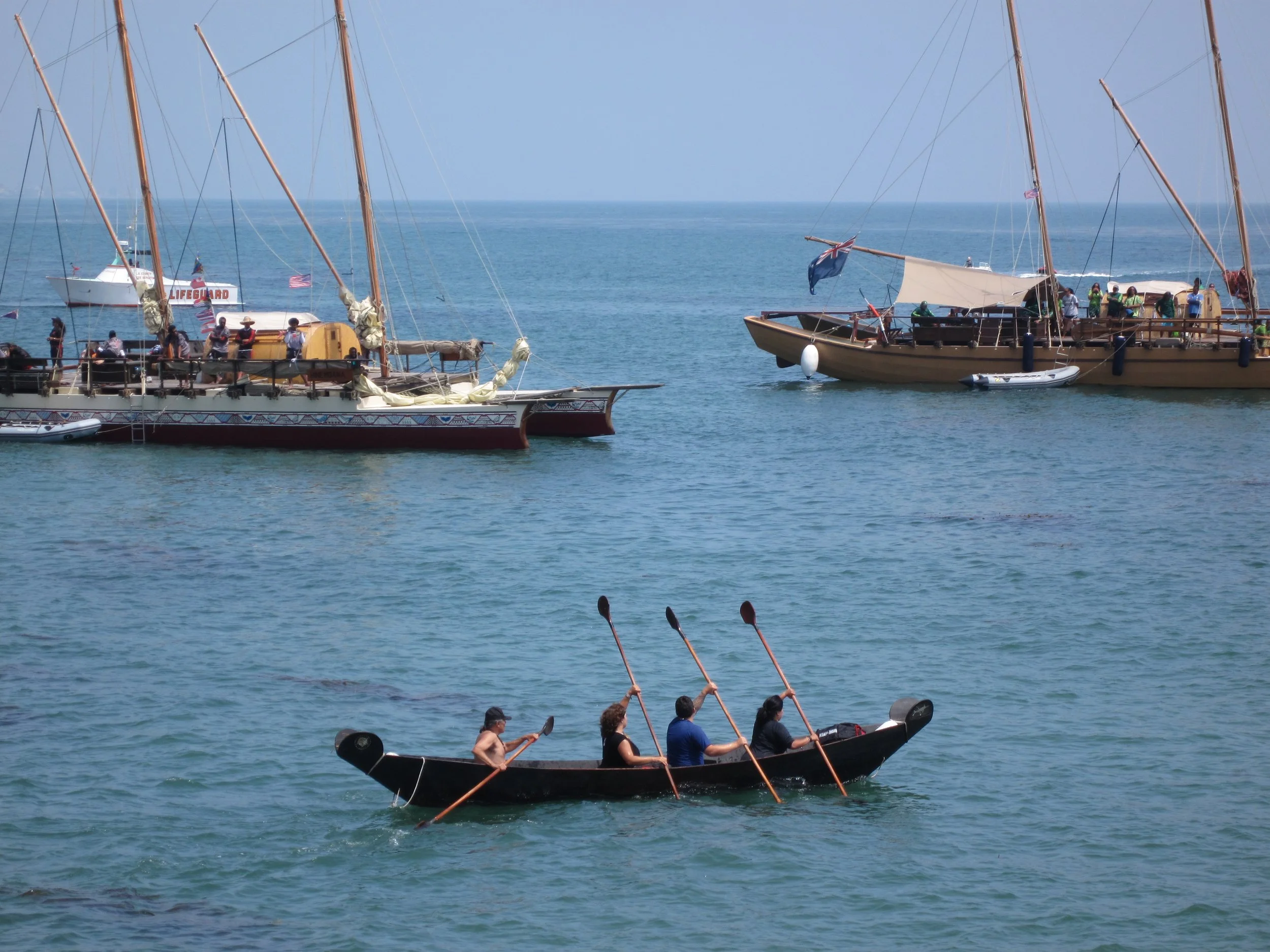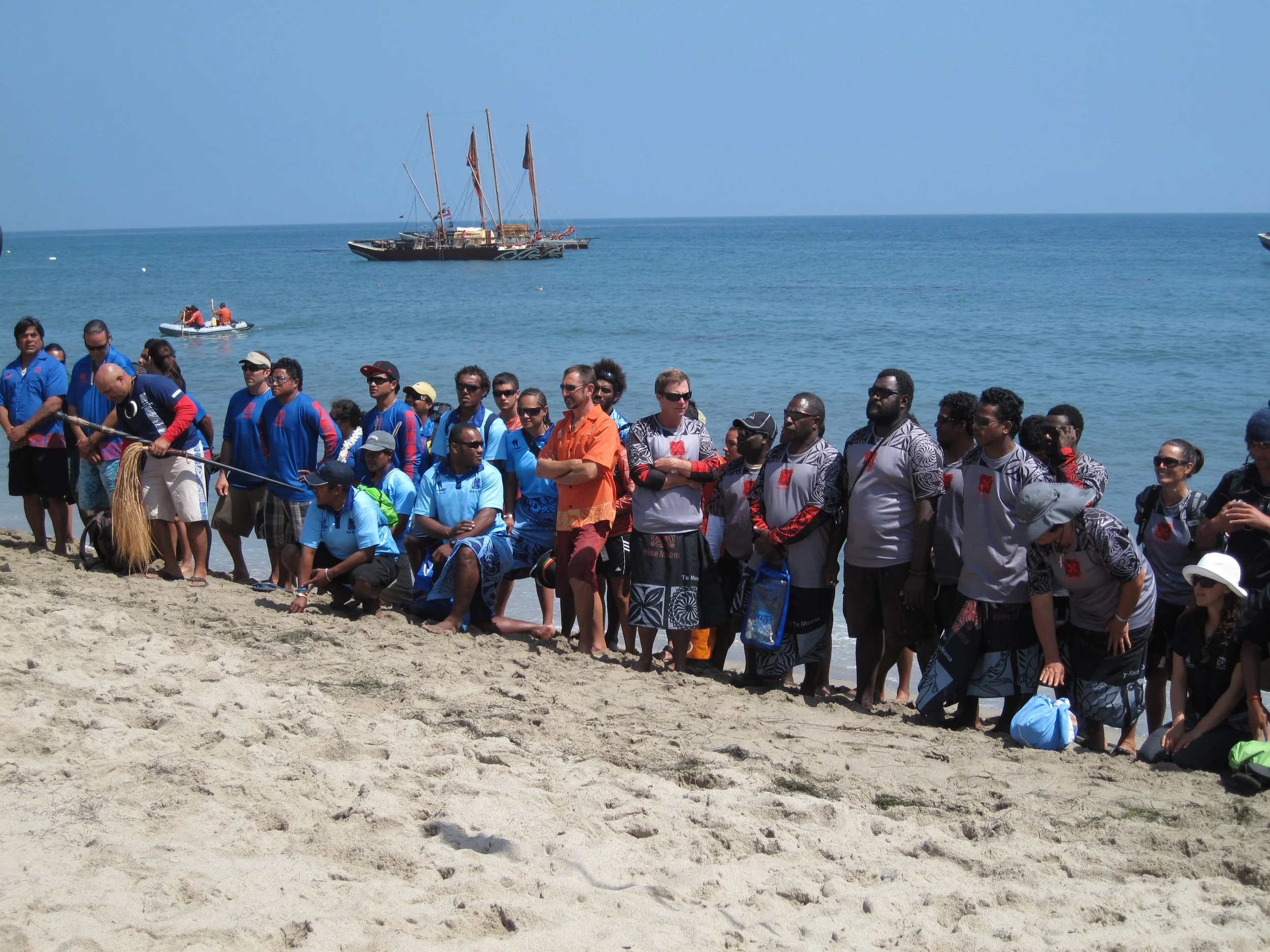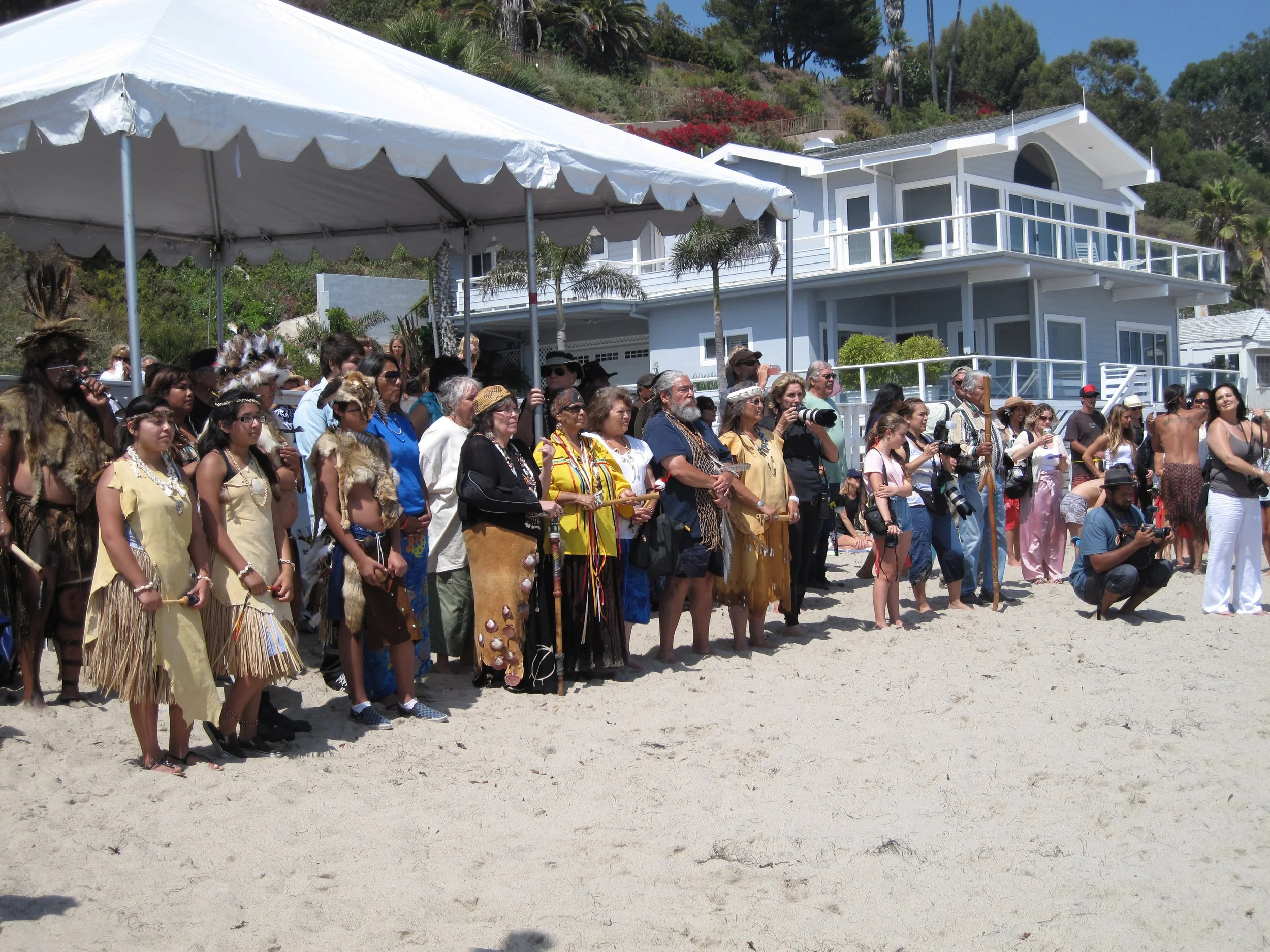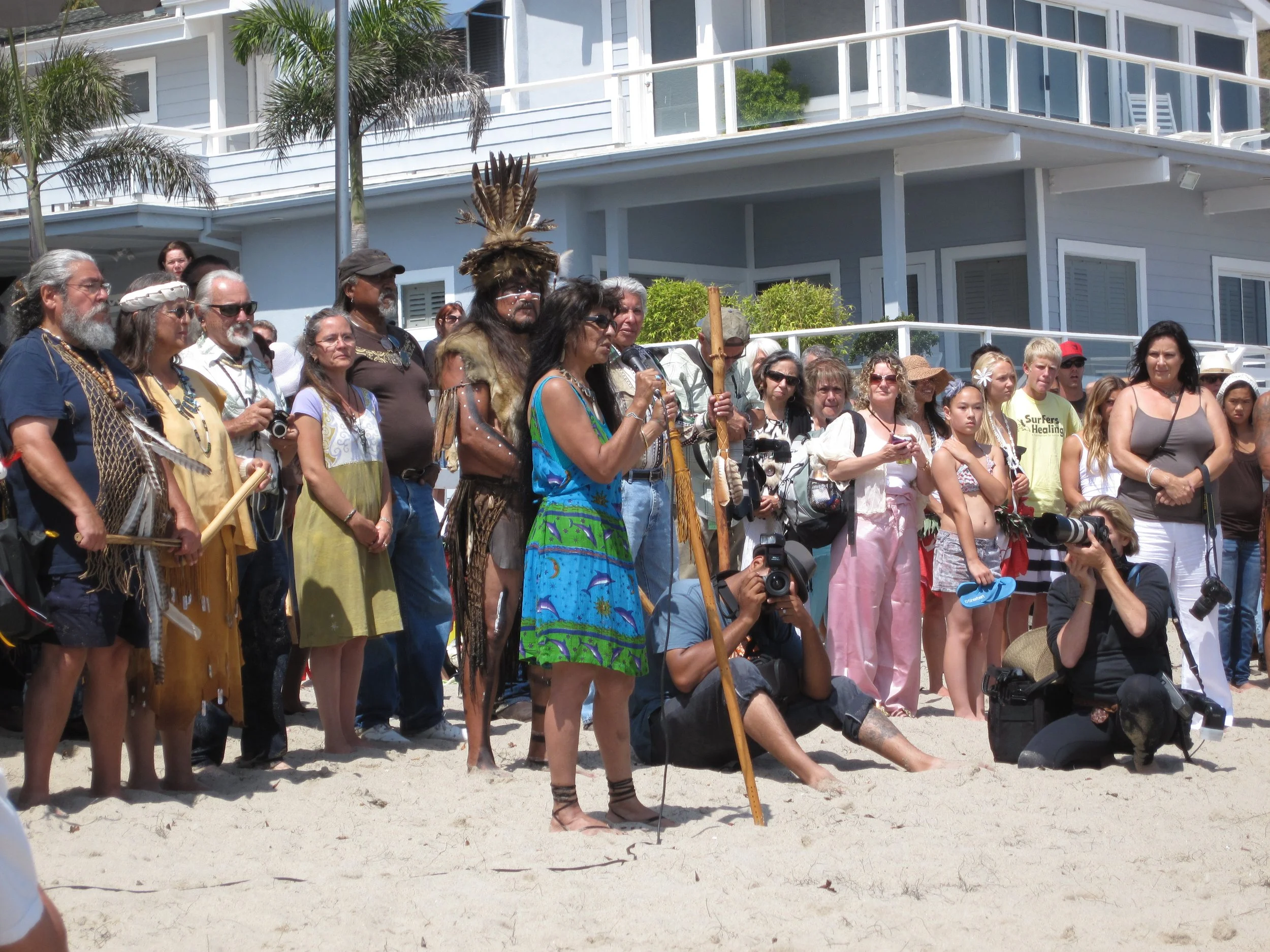Welcoming Pacific Voyagers to Chumash Lands
Seven vakas—hand-carved, salt-tested ocean-voyaging canoes—arrived at Paradise Cove in Malibu on a sunny August weekend in 2011. Pacific Islanders, bearing the name Pacific Voyagers, brought their ancient sailing traditions to meet the shores of the Chumash, not as strangers, but as relatives who had simply taken different ocean currents across time.
At the water’s edge, Chumash people from many tribes waited—Coastal Band, Santa Ynez, Ventura, and more. Their tomols met the vakas in the surf. It wasn’t a performance—it was protocol, a choreography passed down by wind, wood, tide. Chumash singers sent songs across the waves. Dancers stepped rhythms that spoke to the sea and to the guests. Gifts were passed among hands roughened by the sea.
And then, the moment: foreheads touched. Breath exchanged. The intimacy of ha, the murmured greeting of haku, the sacred breath of life, moving from voyager to host, from cousin to cousin. Two ocean-going peoples, separated by miles of blue and centuries of colonial interruption, stood shoulder to shoulder. The distance between them dissolved—not erased, but honored.
These were not tourist, they were navigators, and their voyage began in Aotearoa—April 19, Auckland—crossing through French Polynesia, pausing in Hawai‘i, tracing the ancestral highways of their elders. They sailed into San Francisco on August 2, and by mid-month, they floated into Chumash waters, bearing not only their bodies, but their responsibilities. Stewardship. Reverence. A demand to see the ocean not as a resource but as a relative.
Wishtoyo Foundation, keepers of place and memory, hosted the welcoming. “They are bringing a very profound environmental message to the world with this voyage,” said Luhui Isha Waiya, Wishtoyo’s Cultural Resources and Education Director. But the message was more than political. It was spiritual. It was embodied. It was fed that night at a beachside barbecue beside the 8,000-year-old Chumash village site—one of those timeless meals where the food doesn’t just fill you, it roots you. It says: You belong here, too.
The voyagers moved on, eventually: to San Diego, then Baja, the Galapagos, Tahiti. But for those few days in August, Malibu wasn’t Malibu—it was Humaliwu. It was something older, something remembered. It was the place where canoes met again, and the ocean was reminded it still had children who remembered how to listen.


![8e7af0c72422e3988d7d2f7b736d3d23[1].jpg](https://images.squarespace-cdn.com/content/v1/67efec7413dcd63bcce513e1/1746151853179-P2XRVNMKG7A66KSTYUJE/8e7af0c72422e3988d7d2f7b736d3d23%5B1%5D.jpg)
![IMG_6151[1].JPG](https://images.squarespace-cdn.com/content/v1/67efec7413dcd63bcce513e1/1746151911435-UBDD50QRNJKWQXPPMDM7/IMG_6151%5B1%5D.JPG)
![6dd4a81fb5871c4644be1aa31c403df1[1].jpg](https://images.squarespace-cdn.com/content/v1/67efec7413dcd63bcce513e1/1746151855720-SUE2PW3ZIEYBQW2M8GW6/6dd4a81fb5871c4644be1aa31c403df1%5B1%5D.jpg)


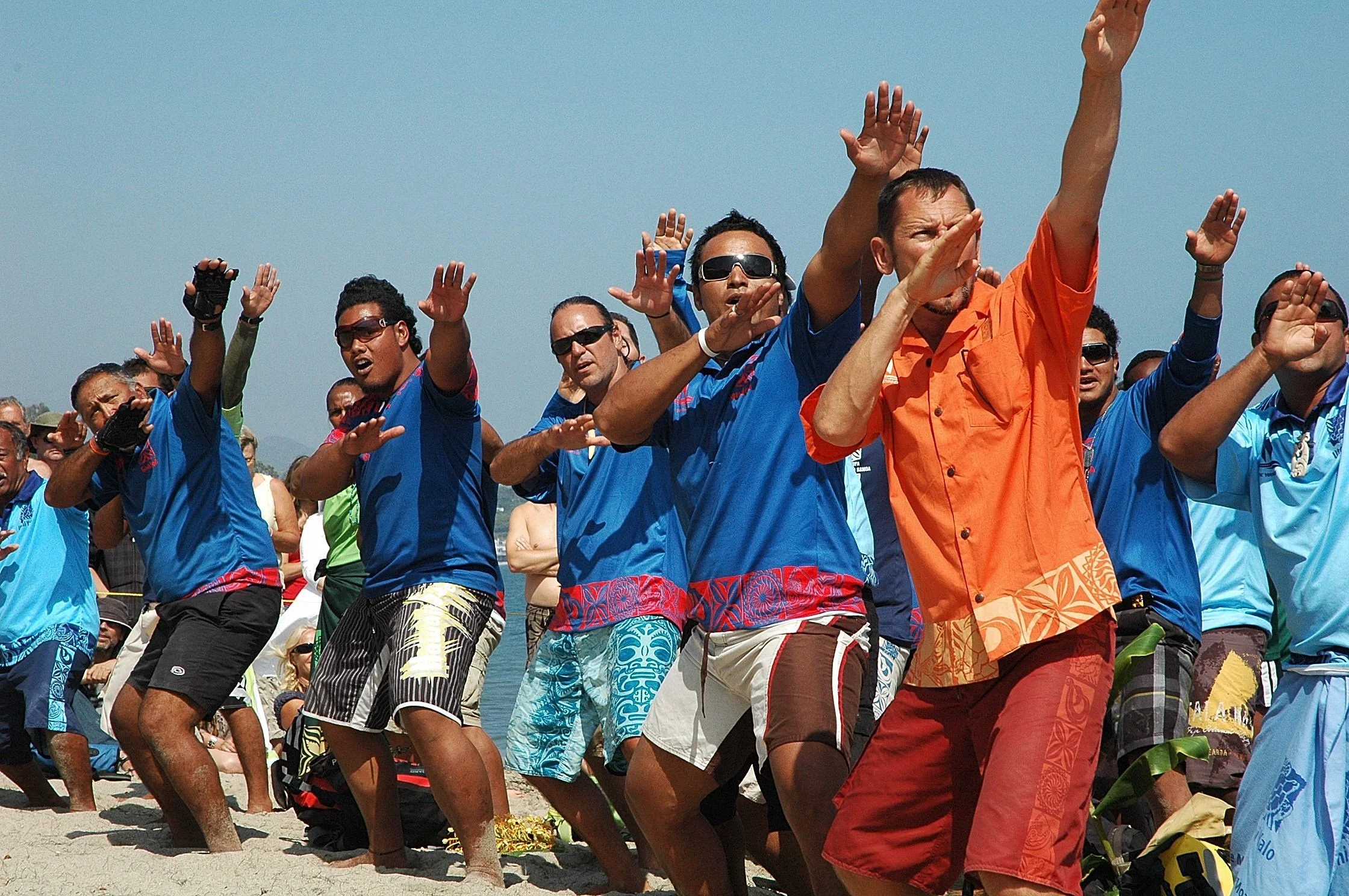

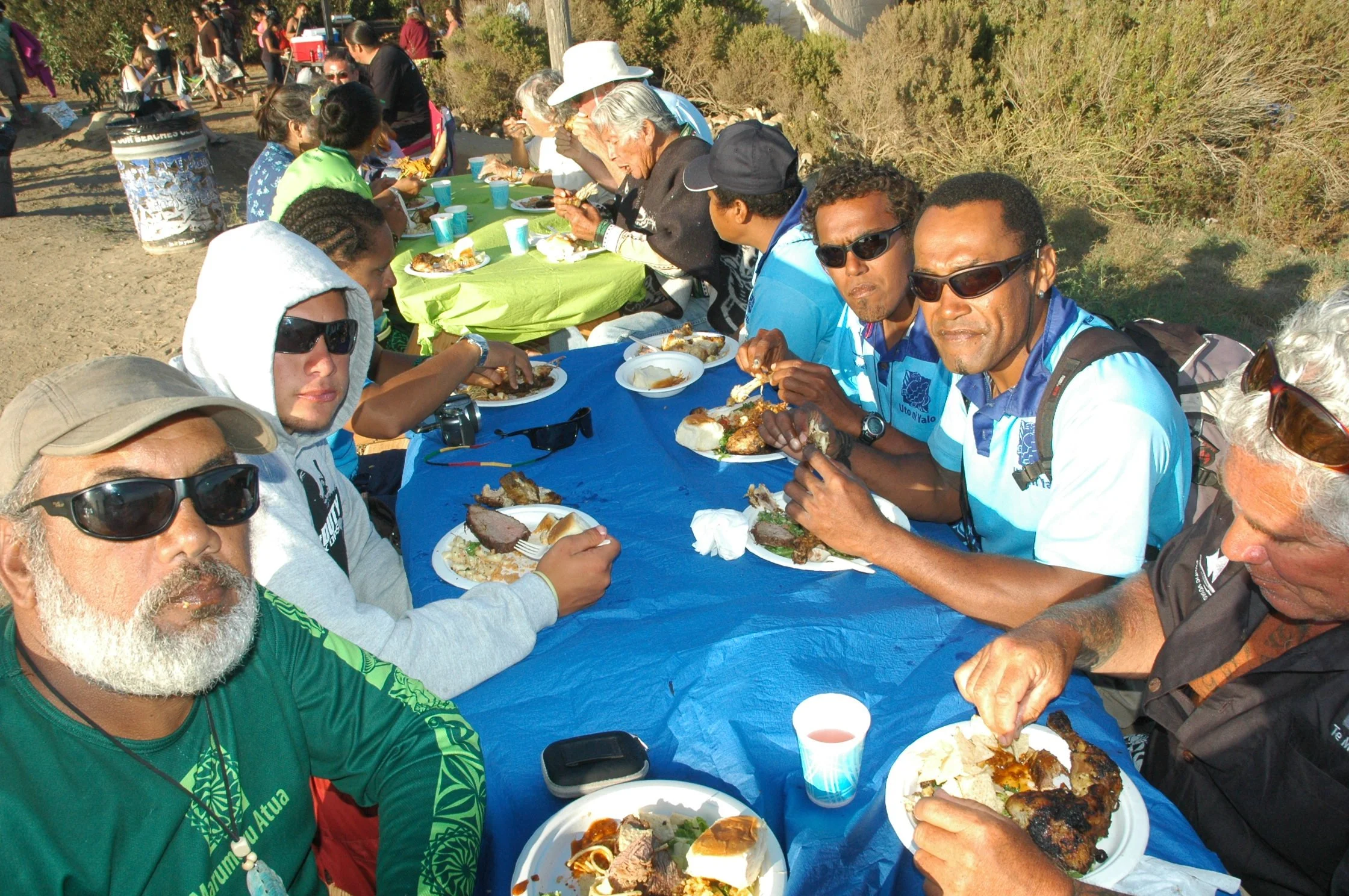
![IMG_6149[1].JPG](https://images.squarespace-cdn.com/content/v1/67efec7413dcd63bcce513e1/1746151911315-1FF4SS6YOOB06KR3UG9O/IMG_6149%5B1%5D.JPG)


